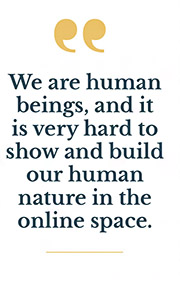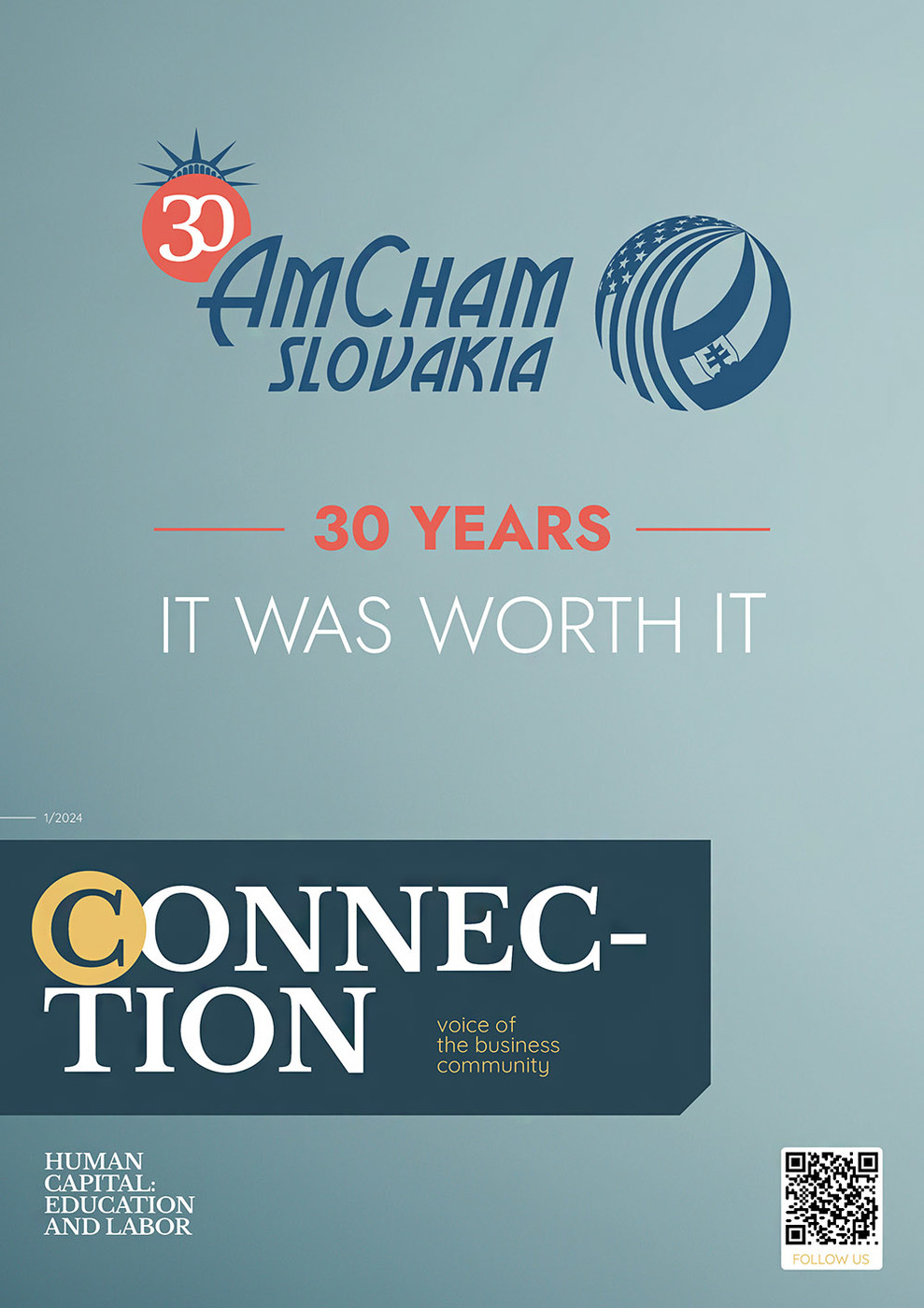The flexibility of a company has never been as desirable as it is in this online age. To reflect turbulent market changes while also maintaining what’s typical for us, to fight for clients and employees, as well as for interesting and even unusual benefits, to maintain the company atmosphere and to ensure the development of employees and managers.
We listen to people
I often hear the questions: “Why aren’t the employees happy?” “Why is the sense of belonging to the company so important?” On the one hand, companies offer remote work, on the other hand, employees working online are much more likely to leave the company. The reason for this is simple: we are human beings, and it is very hard to show and build our human nature in the online space. Everyone wants to feel like they belong somewhere. If we want to acknowledge an employee’s work, do we send them an official letter or e-mail? Do we have a video call with them? Or do we meet them in person and shake their hand? What will the employee value more? What will resonate with them and deepen their relationship with the company? We all well know the answer. That’s why today it is especially important not to be overwhelmed by online options and to take the trouble to talk to people in person, to listen to and perceive our surroundings.
Employee satisfaction surveys are only meaningful if they bring us some results. We think it is critically important to continuously work with the results of such surveys and have regular meetings on this topic in place all. For survey results to be informative, we need as many respondents as possible. We ensure our employees’ engagement by letting them see that we care about their opinions and suggestions and by giving them space and involving them in shaping the company’s future.
 By being active listeners, we show that we are human beings and not machines. If we show genuine interest in the employees, we increase their loyalty and sense of belonging with the company. And the ability to actively listen is a sign of the highest professional maturity of a people manager.
By being active listeners, we show that we are human beings and not machines. If we show genuine interest in the employees, we increase their loyalty and sense of belonging with the company. And the ability to actively listen is a sign of the highest professional maturity of a people manager.
We talk to people
Conversation is a privilege of human beings. We have all experienced situations when we talk to someone and they are peeking at their watch, checking their phones or even answering messages on their computers, smiling... How would you feel in such a situation?
We strive to provide each employee with quality and regular one-on-one meetings with their managers, as this is what brings the most value in building loyalty and a sense of belonging and, equally, in the employees’ satisfaction and engagement levels. Managers’ satisfaction, commitment and belonging translate into the same values in their teams and are directly traceable in the results of their team members.
A manager must consider each employee individually, taking into account their personality, needs, intrinsic motivations and plans, but he or she also has business plans to fulfill. We know that the same piece of information can be communicated in many ways. So how do we choose the best? It is important to prioritize, to prepare for a one-on-one thoroughly, to prepare the questions and, most importantly, to stay focused throughout the talk. Such an approach indicates that the manager cares for the employee and takes a genuine interest in them. Thus, the usefulness and meaningfulness of a one-on-one depends on the person conducting the talk and on the way he or she is handling it.
 We know from the employees’ feedback that the way that a manager talks to his or her team is one of the biggest differentiating factors setting apart “good” and “bad” managers. A manager who has understood this can make their people feel confident even in difficult times.
We know from the employees’ feedback that the way that a manager talks to his or her team is one of the biggest differentiating factors setting apart “good” and “bad” managers. A manager who has understood this can make their people feel confident even in difficult times.
We are human, and that will not change
Have you ever noticed that we often talk about the “what” and the “how”, but only rarely about the “why”? As Simon Sinek, author of the book “Start with Why”, says, our feelings stand behind every decision we make, because we are human. Therefore, it does not suffice if we only communicate to our neocortex – the part of our brains which is responsible for our rational thought, language, facts... i.e. the “what” and the “how”. We also have the limbic part of our brain, which is responsible for our feelings, loyalty, trust, behavior... So if we make a decision, we feel good about it. And that is the “why” element.
A hiring decision has to rely on more than just a mere “Come join us, we have a job for you.” If it were just about that, people could go and work anywhere. The question is WHY should a person choose to work with us? People will only choose us if they believe that our “why” is the same as theirs.
In conclusion
Providing a human touch in this online age is a major challenge for any manager. Quality conversations with employees held regularly, paying attention to the “WHY” and active listening can help to overcome this challenge. So let’s ask ourselves the questions: What do I want? WHY do I want it? How do I get it? What should I do next?
Our development is a never-ending process. If we believe this, we are ready to face changes, and we understand that the only thing we can count on is that change is a certainty. Even within ourselves.
Anna Grominová, Senior HR Business Partner GlobalLogic Slovakia



Follow us